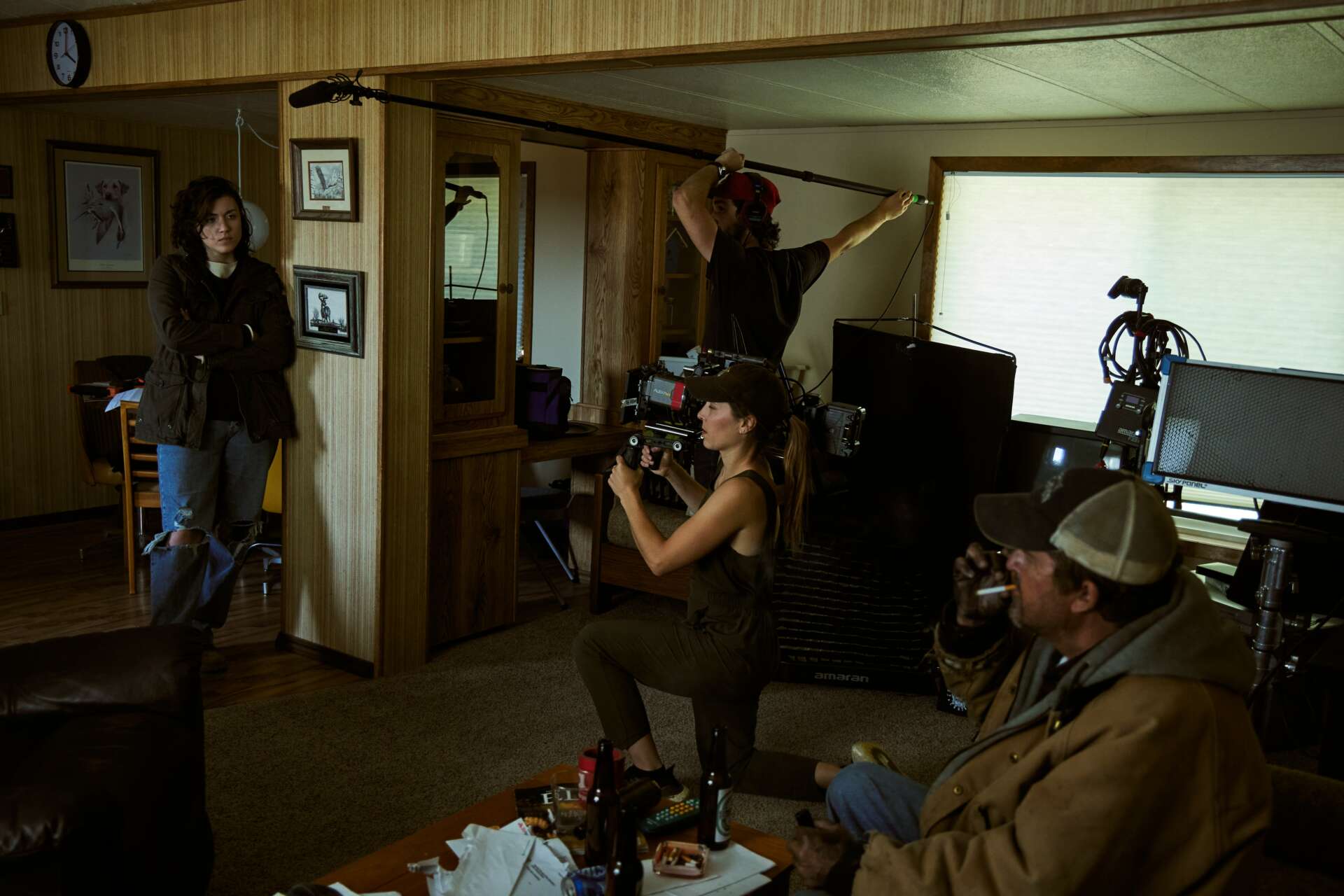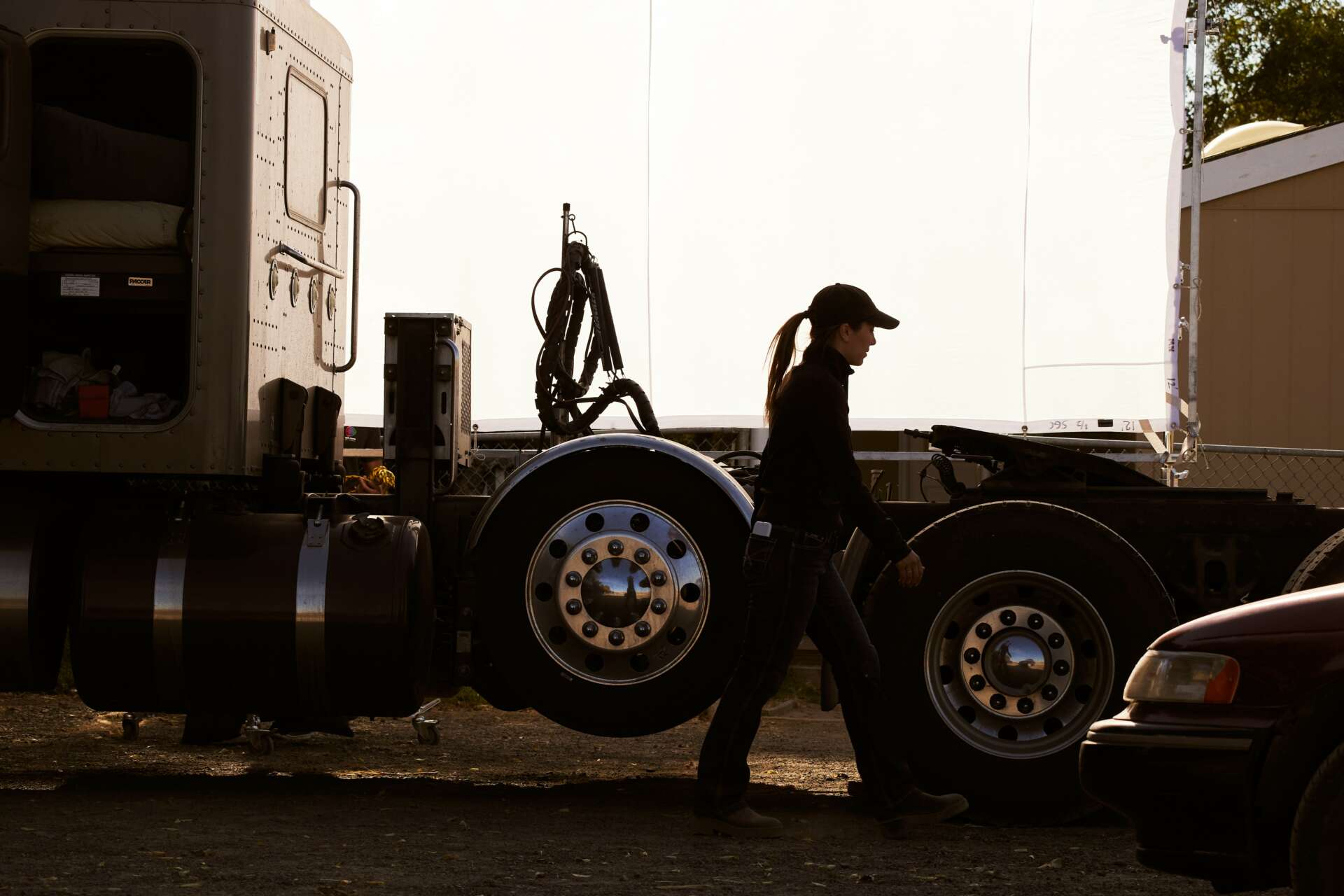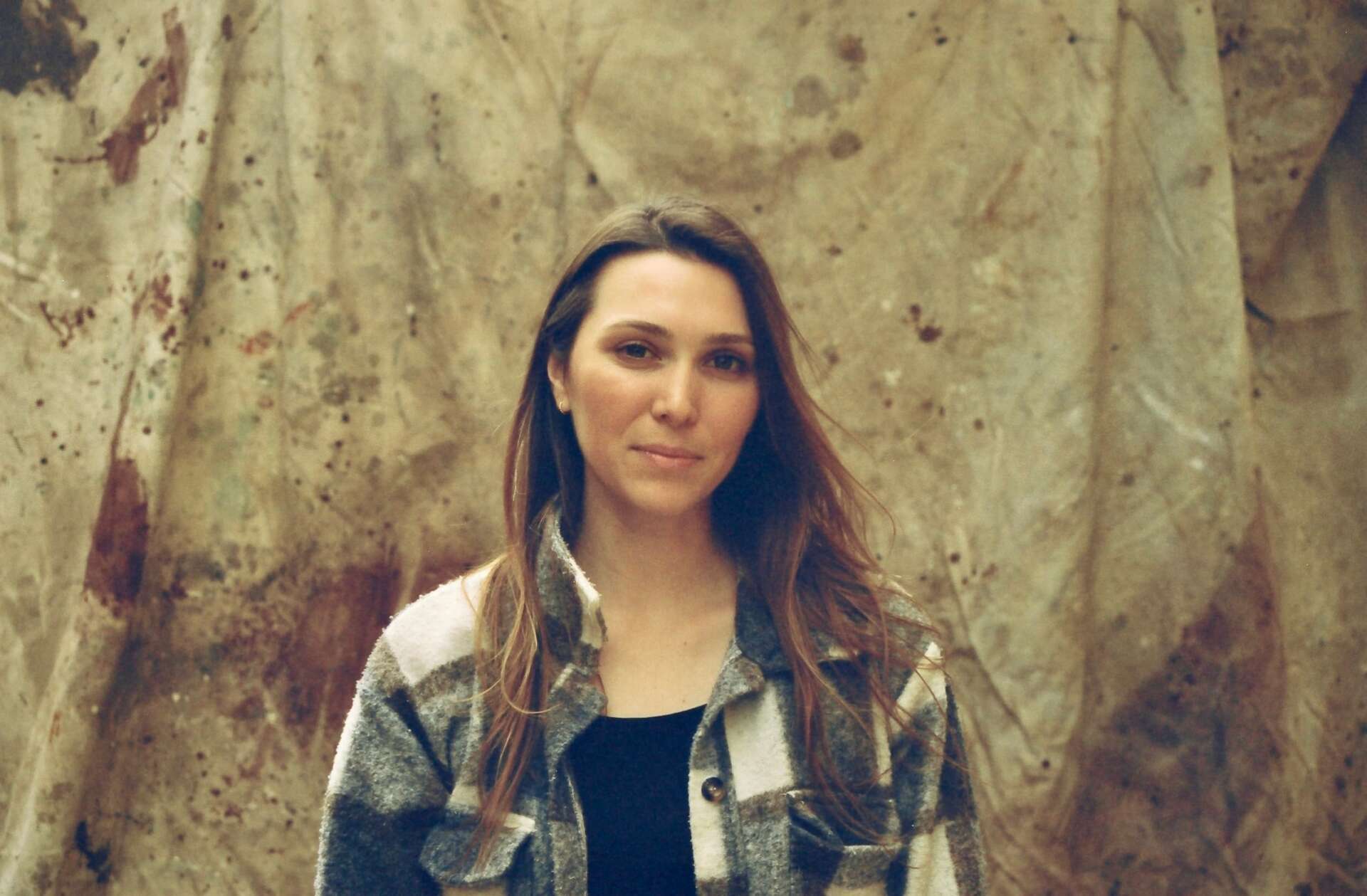We caught up with the brilliant and insightful Haley Watson a few weeks ago and have shared our conversation below.
Haley, thanks for joining us, excited to have you contributing your stories and insights. Have you been able to earn a full-time living from your creative work? If so, can you walk us through your journey and how you made it happen? Was it like that from day one? If not, what were some of the major steps and milestones and do you think you could have sped up the process somehow knowing what you know now?
I recently heard someone talking about a professor they had in film school who said, “If you don’t want your life to be a roller-coaster of emotions and uncertainty, switch majors.” I would agree with this statement, especially in the context of the film industry.
As a filmmaker, I’m constantly growing in my ability to adapt to different “seasons” of work. In recent years, that ability has been put to the test by the pandemic, strikes, and economic downturns. Not having work or experiencing periods of shifting gears in approaching work, is stressful. However, I’ve grown in the way I adapt to those changes.
During my journey to becoming a full-time creative, I spent a lot of time as a technician, learning about all the aspects that go into making a film from the technical side. This has been helpful in planning the scope of a project mindfully, ensuring that I can execute on what I’m pitching. Being on the technical side also kept me on set and strengthened my network while building a creative work portfolio. After establishing my portfolio, I had the opportunity to pitch on projects while continuing to work as a director of photography, which helped me balance the beginnings of a directing career.
In uncertain times or on the journey to doing only creative work, I’ve used my technical skills to be able to make a living in times of change. I’ve also jumped to different formats within filmmaking. Prior to the pandemic I worked primarily in the narrative and commercial spaces. In the pandemic I started working on documentary films. Being able to be adaptable was important to making a living, and I’ve found those experiences in different formats, and different disciplines, all have strength my approach to my creative work.
Recently, I decided to join Indigo Slate, an agency, as their in-house director and creative director of video. I am excited to see the meaningful projects we’ve been working on out in the world. Advertising, in my opinion, is starting to shift, and I’m thrilled to bring my experience as a filmmaker to this space.
All of this leads me to say, I’m not sure of a shortcut to becoming a full-time creative. As creatives, I believe everyone’s process varies wildly. I would encourage anyone starting a creative career to find what will help them during times of uncertainty while forging their path, so they can find a sense of balance. Though I haven’t mastered this, working on meaningful films has helped me get through tougher times, and I’m very grateful for that in my own journey.

Awesome – so before we get into the rest of our questions, can you briefly introduce yourself to our readers.
My career as a filmmaker began under unlikely circumstances. I happened to be living in eastern Washington state while in college. I responded to a volunteer posting on Craigslist for an intern position on a feature film. I didn’t know it at the time, but that moment marked a turning point in my life. While working on the film, I realized I wanted to be a filmmaker and began pursuing my career as a director.
I moved to Seattle to complete my education and started working on set as a production assistant. I had the opportunity to work with some iconic directors like Lynn Shelton and David Lynch. I worked my way through production and the camera department to eventually become a Director of Photography.
In 2018, I relocated to Los Angeles. A few years later, when the pandemic hit, I went in-house at a production company to build a boutique camera house. During that time, I also began doing story research. In 2020, I found and pitched a story idea about a woman named Lucy Harris, who is the only woman to be drafted by the NBA. That pitch became a film called “The Queen of Basketball,” which won the 2021 Academy Award for Best Documentary Short Subject.
I’ve been very fortunate to work with brands like Amazon, Puma, Microsoft, Zegna, Lavazza, and many more. I’ve also had the opportunity to direct independent narrative and documentary shorts. Currently, I work at Indigo Slate as their in-house film director and creative director of video. I’m excited to see some projects that have been very meaningful to me make their way into the world soon.

How can we best help foster a strong, supportive environment for artists and creatives?
Pay fairly.
I think this is a really hot topic right now with the WGA and SAG-AFTRA strike. The idea of what’s happening currently with union strikes carries in value to other scenarios. Creative work is work. If it’s not compensated fairly, it begins to choke itself by not supporting people that are doing the work. If you want to see great art and creativity in the world, we need people doing that work to be able to support themselves and their families.
For you, what’s the most rewarding aspect of being a creative?
I get a lot of personal satisfaction from films where I can facilitate an unknown story from history being told. For example, being able to pitch the “Queen of Basketball” film, a story of Lucy Harris, the only woman to be drafted by the NBA. I think it’s safe to say that that story would have been lost if it wasn’t made at that time. Lucy unfortunately passed away about a year after filming. It’s extremely meaningful to me because the film addresses Lucy’s struggles of being a black woman in her community and having limited opportunities around her experiences as a basketball player and coach.
By being able to put movies like this into the world, the storytellers of the film feel they have a platform to shine that has been denied to them in the past. Hopefully, people watching see the issues that our society is still learning to address and provides a new perspective.
Contact Info:
- Website: HaleyLWatson.com
- Instagram: @HaleyLWatson
- Linkedin: https://www.linkedin.com/in/haleylwatson/
Image Credits
Molly O’Keeffe, Alley Rutzel


